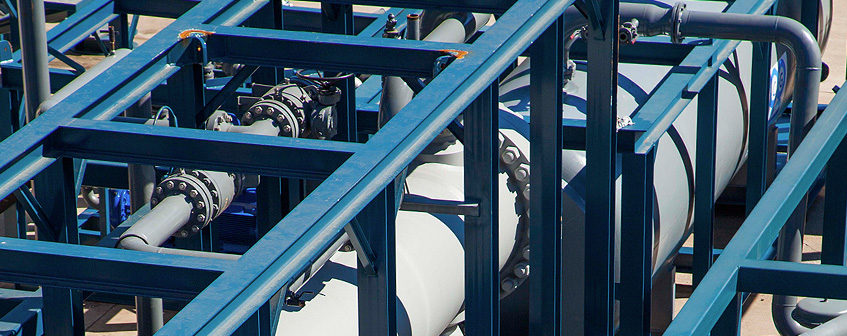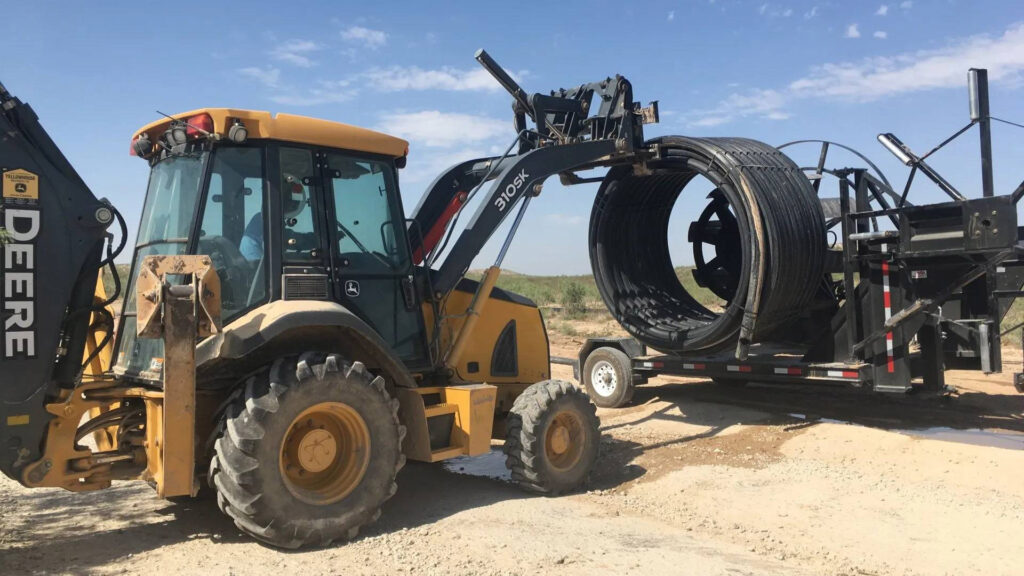Why experts recommend working with Superior Oilfield Rentals in oil and gas projects
A Comprehensive Guide to the Different Kinds of Oil Field Equipment and Pipeline Equipment Available
The oil and gas sector relies greatly on customized equipment for efficient removal and transport. Numerous types of equipment, from drilling rigs to tank, play important functions in this complicated process. Each item of equipment offers unique functions that add to general operational success. Recognizing these components is crucial for anybody associated with the sector. As the sector develops, so as well do the innovations that support it. What advancements are on the perspective?

Drilling Rigs: The Foundation of Oil Expedition
Drilling rigs offer as the crucial machinery in the domain name of oil exploration, enabling companies to gain access to hydrocarbon reserves buried deep underneath the Planet's surface area. These rigs can be found in various kinds, including land rigs, offshore rigs, and mobile units, each developed to operate in certain environments. Geared up with advanced technology, drilling rigs can pass through geological formations with precision, making certain reliable source removal. The structural stability and functional capacities of these rigs are critical, as they must endure extreme problems and significant pressures. In addition, the selection of a boring rig impacts the total job expense and timeline, making it an essential consideration for oil companies seeking to optimize their expedition initiatives and take full advantage of productivity in their procedures.
Pumps: Necessary for Liquid Activity
In the oil extraction procedure, the role of pumps is substantial, helping with the activity of liquids throughout different phases of production. Pumps are crucial for delivering crude oil, water, and other fluids from below ground storage tanks to the surface and afterwards through pipes to refineries. They come in numerous types, including centrifugal, favorable variation, and completely submersible pumps, each serving details functions based on the liquid characteristics and functional demands. Centrifugal pumps are commonly used for their efficiency in high-flow applications, while favorable variation pumps stand out in managing thick fluids. The selection of pump influences general effectiveness, operational safety and security, and upkeep costs. Correct option and maintenance of pumps are important for maximizing manufacturing and minimizing downtime in oil area procedures.
Shutoffs: Managing Circulation and Pressure

Shutoffs play a crucial duty in taking care of the flow and pressure of fluids within oil areas and pipelines. Different sorts of valves serve distinct applications, each created to meet certain features fundamental for reliable operation - Superior Oilfield pipeline equipment rentals. Comprehending the characteristics and uses these shutoffs is necessary for optimizing system efficiency and safety
Kinds of Valves
Important elements in oil area operations, valves play a critical function in regulating the flow and pressure of liquids within pipes and equipment. Different sorts of shutoffs are used to meet the varied requirements of oil and gas manufacturing. Usual kinds include gateway shutoffs, which supply a straight-line flow and marginal pressure decrease; world valves, understood for their strangling capabilities; and ball valves, acknowledged for their fast on/off control. Furthermore, check valves protect against heartburn, while butterfly shutoffs offer a light-weight solution for managing flow. Each shutoff type is created with details materials and setups to endure the harsh problems often found in oil areas, making certain integrity and performance in operations. Recognizing these types is vital for reliable system management.
Valve Applications and Functions
While various kinds of valves serve unique functions, their key applications focus on controlling flow and pressure within oil and gas systems. Shutoffs such as gate, world, and sphere shutoffs control liquid movement, making sure peak performance and security. Gateway valves are typically used for on/off control, providing minimal flow resistance. World valves, on the other hand, deal exact circulation law, making them appropriate for strangling applications. Round valves are favored for their quick procedure and tight sealing capabilities. Furthermore, stress alleviation shutoffs are critical for stopping system overpressure, safeguarding tools integrity. Overall, the proper selection and application of valves boost functional performance, ensuring the trusted transport of oil and gas through pipelines and handling centers.
Compressors: Enhancing Gas Transport
Compressors play a critical role in the effective transportation of gas, ensuring that it moves efficiently via pipelines over fars away. These tools raise the pressure of gas, allowing it to get rid of rubbing and elevation modifications within the pipeline system. Furthermore, compressors assist in the harmonizing of supply and need, fitting fluctuations in usage and production rates. Different kinds of compressors are used in the industry, including centrifugal, reciprocating, and rotating screw compressors, each offering distinctive advantages based on the functional demands. Normal upkeep of these compressors is essential to optimize effectiveness and minimize downtime, ultimately adding to a reputable gas transportation network. Their vital feature highlights the significance of compressors in the total oil and gas framework.
Storage Tanks: Safe and Reliable Fluid Management
Effective transportation of gas counts on different support group, among which is the proper administration of storage containers. These tanks play a crucial duty in securely containing liquids, guaranteeing that operational effectiveness is kept while decreasing environmental dangers. Built from resilient products, they are created to hold up against high stress and corrosive aspects. Appropriately sized and tactically situated, storage space tanks help with the smooth flow of natural gas and other fluids, stopping bottlenecks in supply chains. Routine upkeep and monitoring are crucial to spot leakages or architectural concerns, advertising safety and security and compliance with governing standards. Eventually, the effective monitoring of storage space tanks is essential for the overall integrity and dependability of the oil and gas market's fluid handling systems.
Pipeline Systems: Framework for Transport
Pipeline systems serve as the foundation of the oil and gas market, helping with the effective transport of hydrocarbons over large ranges. These systems include different components, consisting of pipelines, shutoffs, pumps, and compressors, all meticulously made to ensure seamless circulation. The materials made use of in pipeline building, often steel or high-density polyethylene, are chosen for longevity and resistance to corrosion. Pipeline networks can span throughout land and water, linking production websites to refineries and warehouse. In addition, advanced technology enables real-time surveillance of flow prices and pressure degrees, boosting operational efficiency. The tactical placement of these pipes lessens environmental impact while taking full advantage of source availability, therefore playing an essential function in meeting power needs around the world.
Safety Equipment: Making Sure Employee and Environmental Management
The procedure of pipeline systems, while necessary for power transport, also presents substantial safety and security difficulties for workers and the atmosphere. Safety equipment plays a considerable function this page in minimizing these threats. Personal safety equipment (PPE) such as headgears, gloves, and non-slip footwear safeguards workers from physical dangers. In addition, gas discovery systems monitor for leaks, ensuring that additional reading unsafe materials do not posture a danger to personnel or the bordering community. Emergency situation closure systems are critical for promptly stopping procedures during a dilemma, preventing possible disasters. Spill control products, including absorbents and barriers, are basic for minimizing ecological influence. Overall, purchasing comprehensive safety and security devices is important for preserving operational integrity and protecting both workers and the environment in the oil and gas industry.

Often Asked Concerns
Exactly how Do I Choose the Right Oil Field Equipment for My Job?
Selecting the appropriate oil area tools involves assessing job specs, budget plan restraints, and operational requirements. Consider elements such as devices integrity, compatibility with existing systems, and the vendor's online reputation to assure peak performance and safety.
What Are the Upkeep Demands for Oil Field Equipment?
Maintenance requirements for oil field tools consist of normal inspections, lubrication, and prompt repair work. Operators needs to additionally adhere to producer standards, display performance metrics, and assurance conformity with safety and security laws to improve durability and effectiveness.

How Can I Make Certain Conformity With Environmental Regulations?
To guarantee compliance with environmental laws, firms should carry out routine audits, execute best practices, buy training, keep correct documents, and remain updated on regulations (Superior Oilfield browse around here Rentals Texas). Cooperation with ecological companies can likewise enhance adherence to guidelines
What Is the Average Life Expectancy of Pipeline Equipment?
The typical lifespan of pipeline equipment typically ranges from 20 to 50 years, depending on variables such as material high quality, environmental conditions, and upkeep techniques. Normal evaluations can considerably affect longevity and operational efficiency.
Just how Do I Securely Move Oil Field Equipment to Remote Locations?
Transferring oil field tools to remote areas calls for mindful planning, consisting of route assessment, protecting licenses, utilizing suitable automobiles, and making sure safety and security protocols are adhered to. Appropriate training and communication amongst staffs are essential for successful transportation.